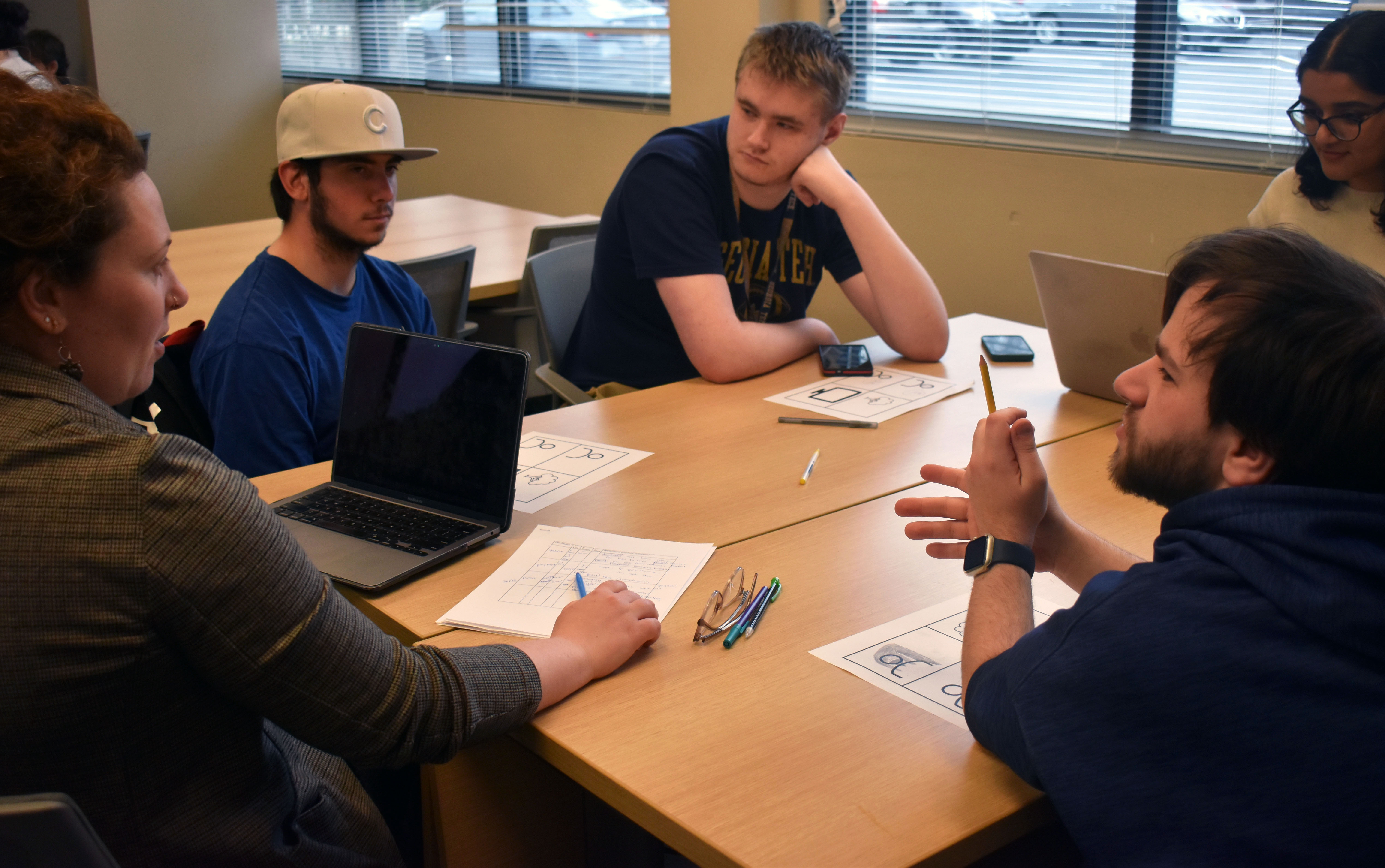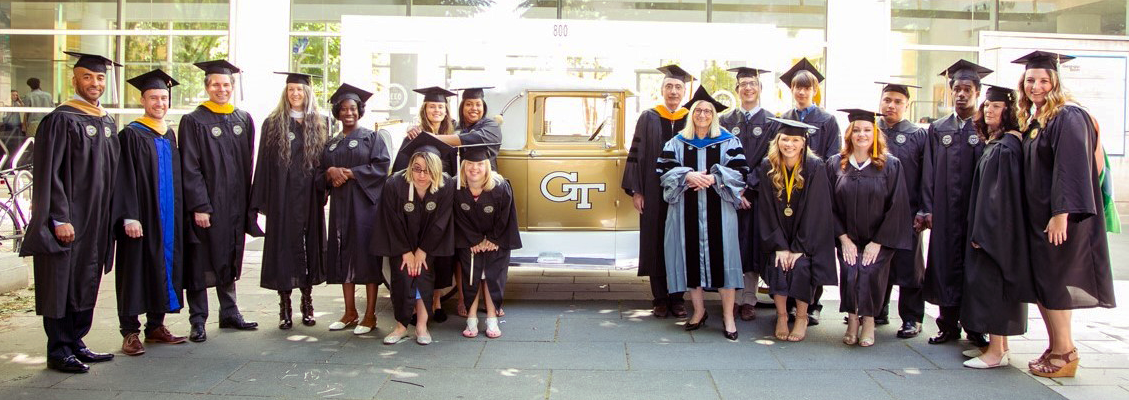by Joëlle Walls

Rachel Lowy, a Ph.D. student in Human-Centered Computing (College of Computing), first co-led a section of EXCEL's Collaborative Design elective course two years ago alongside her faculty advisor, Jennifer Kim, an assistant professor in the School of Interactive Computing. In this first section, EXCEL students worked with emerging technologies—robotic dog prototypes and AI job coaches—to design innovative products and services based on EXCEL students' input.
"We were looking at how feasible it was to do research and teaching in the same class at the same time," Lowy said. "Centering the ideas of individuals with intellectual and developmental disabilities, whoa re often overlooked in participatory design projects, is the foundation of the class, and really the foundation of what we do in our lab in the College of computing. We're exploring how to ensure their ideas lead us, while still using our designer expertise in that process."
In 2024, Lowy focused on publishing research and presenting at conferences. She also interviewed the EXCEL team and students to help shape the next phase of her collaboration. "We felt a little bit like we were rushing through things last time, especially with two projects in one semester," she said. "The variety was nice, but we wanted students to have more time to really think about the technology itself."
Lowy returned this past spring to lead a new iteration of the Collaborative Design course, this time focused on generative AI. She guided students in designing a web interface that uses large language models (LLMs) to make assignments for on-campus classes more accessible to them—one she hopes to pilot next year. After reflecting on her first experience, she recognized that partnering more closely with EXCEL faculty and stuff could bring valuable insight into course implementation. So, this time, she co-taught the course with EXCEL's Senior Lecturer Ashley McKeen.
Throughout the course, Lowy incorporated AI4K12, a foundational AI Curriculum designed to introduce students to the basics of LLMs like ChatGPT. EXCEL students used ChatGPT and Copilot extensively through applying strategies Lowy introduced to explore how LLMs could assist them to make accessible assignments. These included seeing how LLMs could use their personal learning profiles to make individual suggestions for improving assignments, summarizing their learning assessments, and even taking on roles such as teacher or coach to motivate them in different scenarios.
"At the same time, we embedded this LLM reasoning behind a brand-new web platform built by a team of computer science undergraduates, who worked on the prototype prior to the course and made changes during the course based on participants' feedback," Lowy explained. "The web platform enables students to create personal profiles and upload class assignments. Then the LLM uses logic that we embedded in the prompt to generate recommendations that follow Universal Design for Learning principles. Students can then go through and check them off to see finalized assignments with the adaptations. Several students in the Online Master of Science in Computer Science program have worked on the finishing touches this summer."
Helen George, a recent graduate of the College of Computing, who contributed to the research and development of the web platform and served as a teaching assistant, highlights the value of user-centered design and accessibility. "This was my first time co-designing with a user group and one of the best aspects of the experience was how quickly we were able to identify and implement necessary changes for the application in direct response to the student feedback," she said. "This product ultimately aims to increase student autonomy, an area which often is overlooked, so keeping their voices central to the development was paramount. I'm hopeful this research can help inspire similar initiatives to increase student agency at other universities as well."

